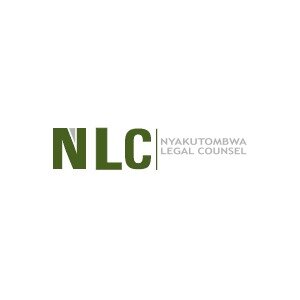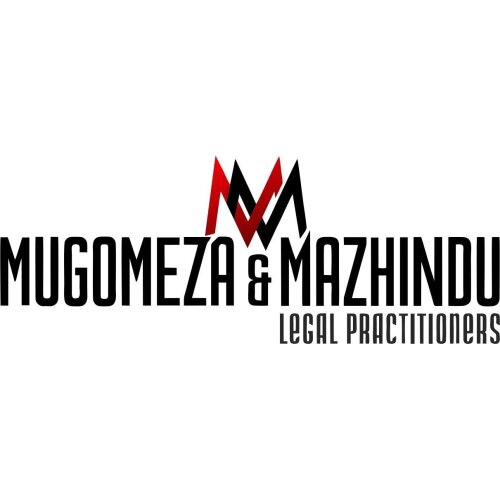Best Business Lawyers in Zimbabwe
Share your needs with us, get contacted by law firms.
Free. Takes 2 min.
Or refine your search by selecting a city:
List of the best lawyers in Zimbabwe
About Business Law in Zimbabwe
Business law in Zimbabwe encompasses a range of legal disciplines crucial for the establishment and operation of companies and enterprises. It covers areas such as company formation, contracts, employment law, taxation, and compliance. Zimbabwe's legal system is rooted in Roman-Dutch law, complemented by English Common Law. It is further supported by statutory laws developed post-independence. The framework provides a structured approach aimed at fostering a stable environment for businesses to thrive amidst challenges.
Why You May Need a Lawyer
Several situations might require the expertise of a lawyer in the field of business in Zimbabwe. Common scenarios include:
- Company Registration and Formation: Navigating the process of establishing a business entity, including drafting and filing the necessary documentation.
- Contractual Agreements: Crafting, reviewing, and negotiating contracts to protect your interests in business transactions.
- Dispute Resolution: Handling conflicts both within the organization (like shareholder disputes) and with external parties (like suppliers or customers).
- Intellectual Property Protection: Securing and enforcing rights over trademarks, patents, and copyrights.
- Compliance and Regulatory Guidance: Ensuring that business practices meet local laws and international standards.
- Mergers and Acquisitions: Offering advice on the purchase, sale, or restructuring of businesses.
- Employment Issues: Advising on labor laws, employee contracts, and dispute resolutions between employer and employees.
Local Laws Overview
Key aspects of local laws applicable to business in Zimbabwe include:
- Companies and Other Business Entities Act: Governs the registration, management, and operational aspects of various business entities.
- Labor Act: Outlines the statutory rights of employers and employees including employment contracts, working conditions, and dispute mechanisms.
- Intellectual Property Laws: Protects the rights related to creations of the mind, such as inventions and literary works, under the Industrial Designs Act, Trademarks Act, etc.
- Income Tax Act: Provides guidelines on tax obligations of companies and individuals to the Zimbabwe Revenue Authority (ZIMRA).
- Environmental Management Act: Addresses the compliance requirements for businesses to protect the environment during operations.
Frequently Asked Questions
What is the process of registering a company in Zimbabwe?
To register a company, one must decide on a business name, prepare the company’s constitution, complete the CR6 (now known as the Company Application requirement), and submit the necessary documents to the Registrar of Companies.
Are foreign investors allowed to own businesses in Zimbabwe?
Yes, foreign investors can own businesses in Zimbabwe, but they must comply with the Indigenization and Economic Empowerment Act, which may restrict foreign ownership percentages in certain sectors.
What types of business structures are available?
Options include private limited companies, public limited companies, partnerships, sole proprietorships, and non-profit organizations.
What are the basic legal requirements for hiring employees?
Employers must comply with the Labor Act, which includes drafting formal employment contracts, adherence to statutory wages, and ensuring safe working conditions.
How do I protect my business’s intellectual property in Zimbabwe?
Register trademarks, patents, or copyrights with the respective registries-this secures legal protection against unauthorized use or infringement.
What are the tax obligations of a business in Zimbabwe?
Businesses are required to register for tax with ZIMRA, file returns, and pay corporate income tax, value-added tax (VAT), Pay As You Earn (PAYE) for employees, and other applicable levies.
How can I handle a dispute with a business partner?
Start with negotiation or mediation. If unresolved, escalate to arbitration or legal proceedings in a court of law.
What permits or licenses might I need to operate my business?
Depending on the industry, you may require specific licenses such as health permits, environmental clearances, or trade licenses from relevant authorities.
Can I change my business structure after registration?
Yes, it is possible to change the business structure, but it requires filing certain forms and amendments with the Registrar of Companies.
What is the role of the Competition and Tariff Commission?
This body ensures that competitive practices are maintained in marketplaces, preventing monopolistic behaviors and safeguarding consumer interests.
Additional Resources
For more detailed information and assistance, consider reaching out to:
- Zimbabwe Revenue Authority (ZIMRA): For comprehensive guidance on business tax obligations.
- Registrar of Companies: Facilitates company registration and matters related to business entities.
- Competition and Tariff Commission: Oversees fair play in commerce, prohibiting anti-competitive practices.
- Ministry of Industry and Commerce: Provides support and advisory on industrial and commercial sectors.
- Zimbabwe National Chamber of Commerce (ZNCC): A network providing business support and advocacy for enterprises.
Next Steps
If you require legal assistance in business, consider the following steps:
- Research: Gather information about potential legal requirements or conflicts you anticipate.
- Consult a Lawyer: Seek advice from a qualified business lawyer experienced in Zimbabwean laws.
- Plan Consultation: Prepare all necessary documents and details related to your issue for the consultation.
- Follow Recommendations: Implement the advice given by your legal advisor meticulously.
- Stay Informed: Keep abreast of any changes in law that may affect your business.
By adhering to these steps, you can effectively navigate the complexities of business law in Zimbabwe and protect your enterprise's interests.
Lawzana helps you find the best lawyers and law firms in Zimbabwe through a curated and pre-screened list of qualified legal professionals. Our platform offers rankings and detailed profiles of attorneys and law firms, allowing you to compare based on practice areas, including Business, experience, and client feedback.
Each profile includes a description of the firm's areas of practice, client reviews, team members and partners, year of establishment, spoken languages, office locations, contact information, social media presence, and any published articles or resources. Most firms on our platform speak English and are experienced in both local and international legal matters.
Get a quote from top-rated law firms in Zimbabwe — quickly, securely, and without unnecessary hassle.
Disclaimer:
The information provided on this page is for general informational purposes only and does not constitute legal advice. While we strive to ensure the accuracy and relevance of the content, legal information may change over time, and interpretations of the law can vary. You should always consult with a qualified legal professional for advice specific to your situation.
We disclaim all liability for actions taken or not taken based on the content of this page. If you believe any information is incorrect or outdated, please contact us, and we will review and update it where appropriate.
Browse business law firms by service in Zimbabwe
Zimbabwe Attorneys in related practice areas.
Browse business law firms by city in Zimbabwe
Refine your search by selecting a city.
















